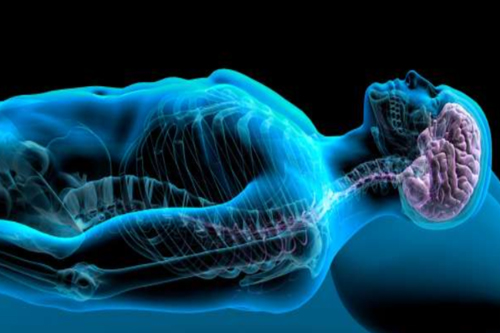
Neurotrauma
Neurotrauma In Nagpur are sudden injuries to the nerves, head, or spine. Others involve concussions and TBIs, spinal and skull fractures, SCIs. There are the neurosurgical teams in hospitals who are highly effective at handling any kind of neurotraumas. Neurotrauma is the immediate trauma to the head and spine, caused by sudden impacts. This encompasses concussion, traumatic brain injury, skull fracture, fracture of the spinal column, and spinal cord injury. Providers at Mount Sinai Health System’s Department of Neurosurgery Neurotrauma Program are neurosurgeons; they have extensive education and experience to ensure evaluation and treatment of any neurotrauma.
What is Neurotrauma?
Neurotrauma refers to injuries affecting the nervous system, including the brain and spinal cord. These injuries can result from accidents, falls, sports injuries, or violent impacts. Neurotrauma can lead to temporary or permanent impairment, affecting motor functions, cognition, and overall quality of life.
Common Causes of Neurotrauma
- Traumatic Brain Injury (TBI) – Caused by a sudden impact to the head, leading to concussions, contusions, or skull fractures.
- Spinal Cord Injury (SCI) – Damage to the spinal cord due to accidents, falls, or sports-related incidents.
- Stroke-Induced Trauma – Hemorrhagic or ischemic strokes can cause neurological trauma affecting brain function.
- Workplace or Sports Injuries – High-impact activities can increase the risk of neurotrauma.
- Road Accidents – One of the leading causes of brain and spinal injuries worldwide.
Symptoms of Neurotrauma
Common symptoms include:
- Loss of consciousness or confusion
- Memory loss or cognitive impairment
- Difficulty in movement or paralysis
- Severe headaches or dizziness
- Speech or vision disturbances
- Seizures or loss of balance
Diagnosis and Treatment of Neurotrauma
Diagnosis
Neurotrauma is diagnosed using advanced imaging techniques such as:
- CT Scan – Helps detect brain hemorrhages, fractures, and swelling.
- MRI Scan – Provides a detailed view of soft tissues, nerves, and spinal cord damage.
- Neurological Exams – Assess motor function, reflexes, and sensory response
Treatment Options
- Emergency Medical Care – Immediate medical intervention is crucial to prevent complications.
- Surgery – In severe cases, neurosurgical procedures may be required to remove blood clots, relieve pressure, or repair damaged tissues.
- Rehabilitation Therapy – Includes physical therapy, occupational therapy, and speech therapy to aid recovery.
- Medications – Pain relievers, anti-inflammatory drugs, and neuroprotective agents help manage symptoms and promote healing.
- Minimally Invasive Neurosurgery – Advanced techniques such as endoscopic surgery can be used for better recovery outcomes.
Types of Neurotrauma
- Traumatic Brain Injury (TBI)
Definition: A form of neurotrauma that occurs when an external force injures the brain.
Types:
– Concussion: A mild form of TBI, often with temporary effects on brain function.
– Contusion: Bruising of the brain tissue, usually from a direct blow to the head.
– Penetrating Injury: Occurs when an object penetrates the skull or brain.
– Diffuse Axonal Injury: Widespread damage to brain cells due to the rotational forces during an impact.
– Symptoms: Headache, confusion, dizziness, memory problems, difficulty concentrating, mood changes, and in severe cases, loss of consciousness or coma. - Spinal Cord Injury (SCI)
Definition: Damage to the spinal cord that results in loss of function, sensation, or mobility.
Types:
– Complete Injury: Total loss of sensory or motor function below the injury site.
– Incomplete Injury: Some function remains below the injury site; varying degrees of the recovery are possible.
– Symptoms: Weakness or paralysis in the limbs, loss of sensation, changes in bowel or bladder control, and respiratory difficulties (in high cervical injuries). - Peripheral Nerve Injury
– Definition: Injury to the nerves outside the brain and spinal cord, often due to trauma, compression, or laceration.
– Symptoms: Weakness, numbness, tingling, and loss of function in the affected area (e.g., wrist drop, foot drop).
Preventing Neurotrauma
- Emergency Medical Care – Immediate medical intervention is crucial to prevent complications.
- Surgery – In severe cases, neurosurgical procedures may be required to remove blood clots, relieve pressure, or repair damaged tissues.
- Rehabilitation Therapy – Includes physical therapy, occupational therapy, and speech therapy to aid recovery.
- Medications – Pain relievers, anti-inflammatory drugs, and neuroprotective agents help manage symptoms and promote healing.
- Minimally Invasive Neurosurgery – Advanced techniques such as endoscopic surgery can be used for better recovery outcomes.Contact Us
Conclusion
Neurotrauma is a serious medical condition requiring immediate attention and specialized treatment. With timely diagnosis and advanced treatment options, patients can recover and regain their quality of life. If you or a loved one has suffered from neurotrauma, consult a neurologist or neurosurgeon for the best care and rehabilitation options.Schedule your Consultation with Dr. Ritesh Nawkhare
